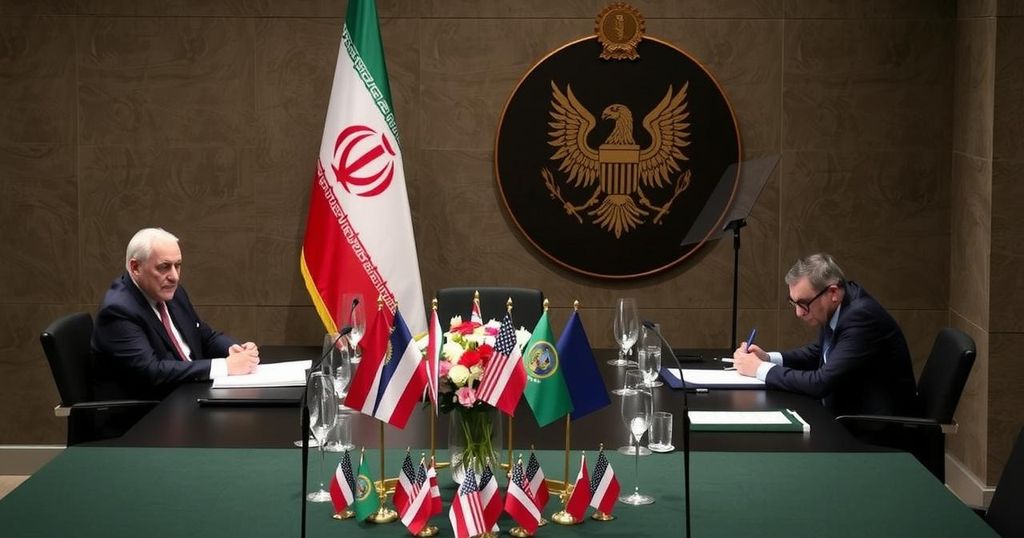European powers resumed nuclear negotiations with Iran in Geneva amid heightened scrutiny over Iran’s enriched uranium stockpile and possible external support from Russia. Analysts suggest that the weakened Iranian regime may be more amenable to dialogue under the renewed pressure from Donald Trump, who could consider preemptive military actions.
European powers, specifically the United Kingdom, France, and Germany, have resumed negotiations with Iran concerning its contentious nuclear program. These discussions, taking place in Geneva, follow a period of heightened scrutiny regarding Iran’s nuclear activities under the prospect of Donald Trump’s return to political power. The meetings come as concerns grow over Iran’s increasing stockpile of highly enriched uranium, noted as reaching ‘unprecedented levels.’ Furthermore, reports suggest that Iran may be seeking assistance from Russia to enhance its nuclear capabilities.
Analysts have indicated that a potentially weakened Iranian regime may welcome negotiations, especially with Trump reportedly contemplating preemptive military action to restrict Iran’s nuclear ambitions. This presents what some observers describe as a ‘narrow window’ for diplomatic engagement, wherein the Iranian leadership might be more inclined to discuss their nuclear activities, aiming to defuse tensions while Trump possesses considerable political momentum.
The significance of these talks is underscored by the geopolitical tensions surrounding Iran’s nuclear program, which has been a focal point of international relations since concerns about nuclear proliferation emerged. The discussions in Geneva indicate a strategic attempt by European nations to address the escalating threat posed by Iran’s enriched uranium stockpile, especially in light of historical opposition from Trump and his administration to Iran’s nuclear pursuits.
In conclusion, the resumption of nuclear talks between European powers and Iran is a crucial development amidst heightened concerns regarding Iran’s nuclear capabilities under the leadership of an emboldened regime. The potential for negotiations appears time-sensitive, influenced by external pressures and geopolitical dynamics, particularly with Donald Trump’s anticipated return to political influence.
Original Source: www.semafor.com






